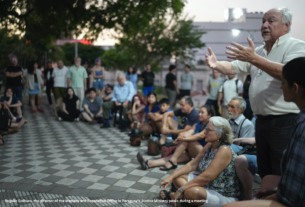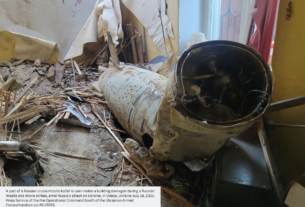British Prime Minister Keir Starmer has welcomed Ukraine’s acceptance of a ceasefire proposal, calling it a crucial opportunity to de-escalate the war. He stated that the next move now rests with Russia, urging Moscow to take concrete steps toward peace.
“You cannot demand a ceasefire while continuing to launch attacks,” Starmer said, emphasizing that Ukraine has shown willingness to end hostilities. He warned that any rejection by Russia would reveal its lack of commitment to a peaceful resolution.
The ceasefire proposal, introduced during recent diplomatic efforts, aims to halt fighting for 30 days while negotiations continue. Ukraine’s acceptance signals its intent to seek a lasting settlement without compromising its sovereignty.
Russia has not officially responded but has previously dismissed similar proposals. The Kremlin maintains that any agreement must include Ukraine recognizing Russian territorial claims.
Western leaders view the ceasefire as a test of Russia’s sincerity. Starmer, alongside other European leaders, has urged the international community to hold Moscow accountable if it rejects the deal.
Britain continues to support Ukraine through military and humanitarian aid. Starmer reaffirmed the UK’s commitment to strengthening Ukraine’s defenses regardless of the ceasefire outcome.
“The war must end on Ukraine’s terms, not through imposed conditions,” he said, stressing the importance of upholding international law.
Public opinion in Britain remains largely supportive of Ukraine, though concerns over the conflict’s economic impact have grown. Rising energy costs and defense spending have placed pressure on the government.
Some members of Parliament have questioned whether continued military aid is sustainable. Starmer argued that supporting Ukraine is essential to preventing further aggression in Europe.
The ceasefire talks follow months of failed negotiations and ongoing battlefield clashes. Ukrainian forces have managed to resist Russian advances but continue to face missile strikes and drone attacks.
President Volodymyr Zelensky has called on allies to maintain pressure on Russia. He insists that peace must come with security guarantees to prevent future invasions.
Russia, meanwhile, accuses the West of prolonging the conflict by supplying weapons to Ukraine. Moscow claims its military objectives remain unchanged despite heavy losses.
The UK has played a key role in rallying European support for Ukraine. Starmer recently met with NATO allies to discuss future military assistance.
Britain’s stance contrasts with shifting positions in other Western nations. The United States, under President Donald Trump, has signaled a more cautious approach to military aid.
Trump has urged Ukraine to negotiate but has not publicly endorsed the ceasefire proposal. His administration’s reduced involvement has led European leaders to take a more active role.
Without U.S. leadership, European nations are seeking alternative strategies to ensure Ukraine remains supported. Starmer has called for a unified approach to counter Russian influence.
Economic sanctions remain a key tool in pressuring Moscow. The UK has expanded sanctions targeting Russian banks, energy firms, and oligarchs.
The impact of sanctions on Russia’s economy has been mixed. While some industries have suffered, Moscow has adapted by strengthening trade ties with China and other allies.
Ukraine remains focused on regaining occupied territories. Zelensky has stated that any peace deal must include the restoration of Ukraine’s 1991 borders.
Russia has shown no signs of withdrawing from annexed regions. The Kremlin insists that Crimea and parts of eastern Ukraine are now permanently part of Russia.
International mediators continue efforts to bridge the gap between both sides. Some analysts believe a temporary ceasefire could reduce civilian suffering but doubt it will lead to lasting peace.
Starmer acknowledged the complexity of the situation but stressed that diplomacy must be pursued. He urged Western nations to remain firm in their support for Ukraine.
Ukraine’s allies fear that without continued military aid, Russia could gain the upper hand. Starmer reassured Kyiv that Britain’s support would not waver.
The coming weeks will determine whether the ceasefire holds. Russia’s response will be closely watched by global leaders and military strategists.
If Moscow refuses, pressure for increased sanctions and military assistance is likely to grow. Starmer and other leaders have warned that rejecting peace could have serious consequences.




